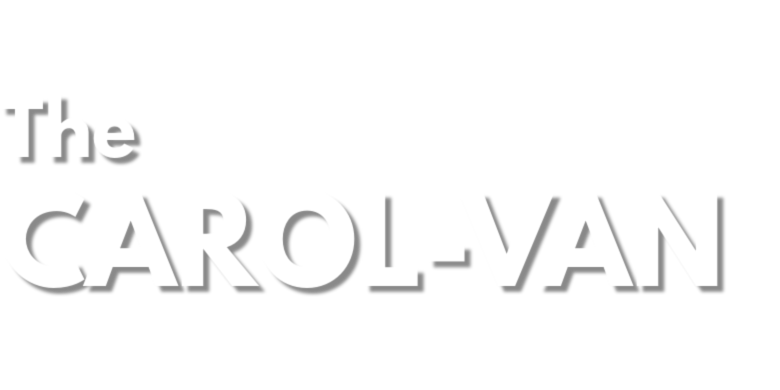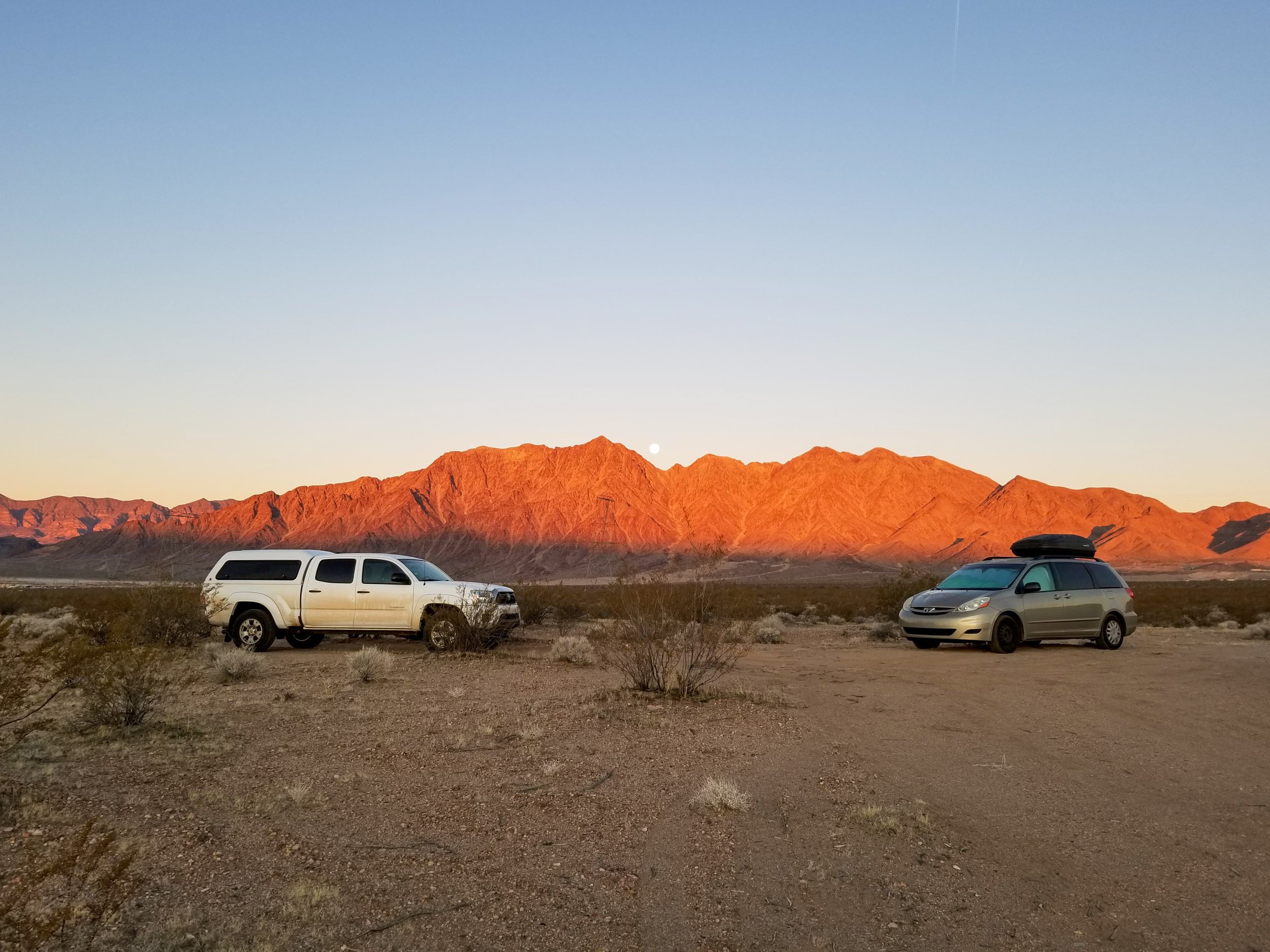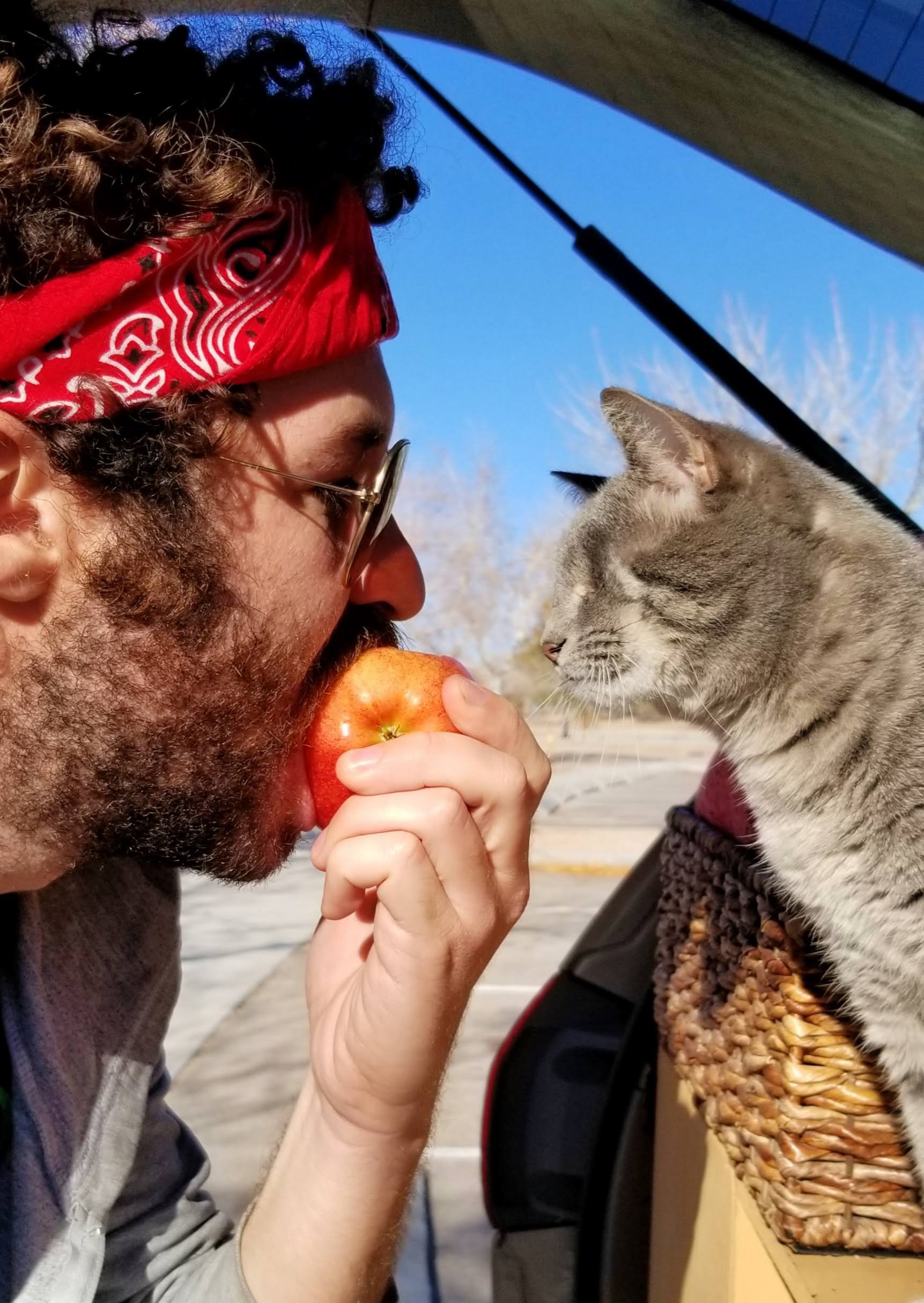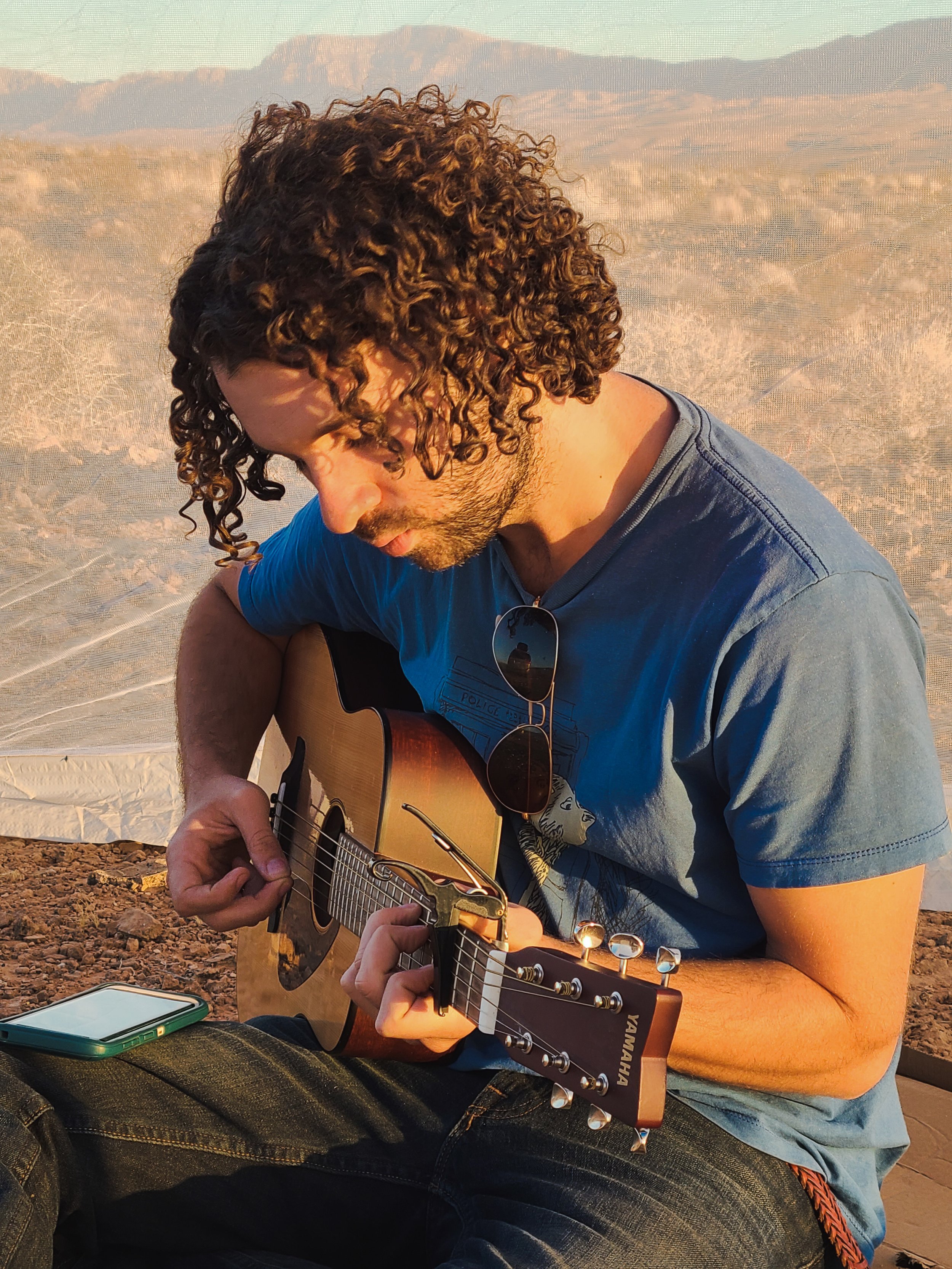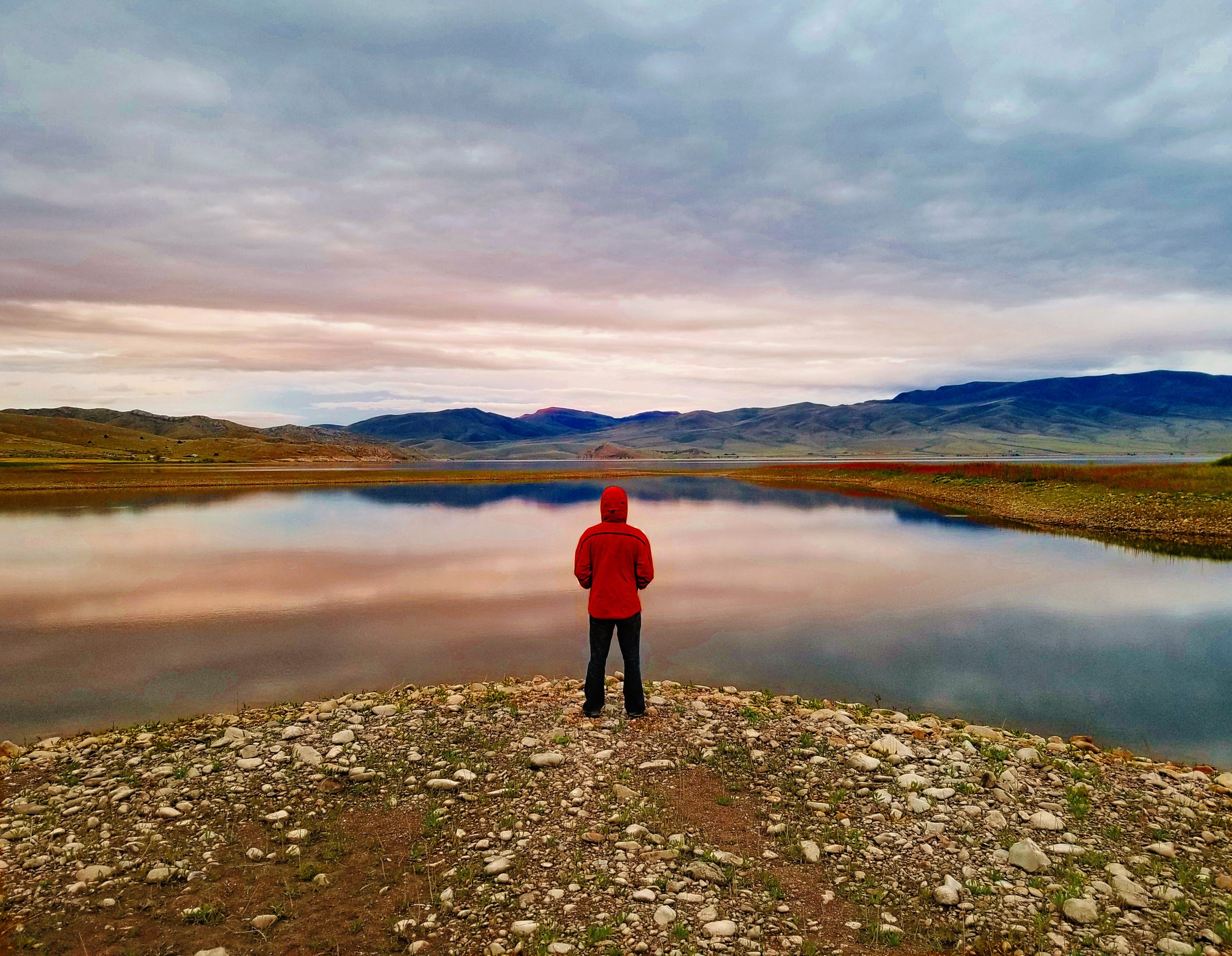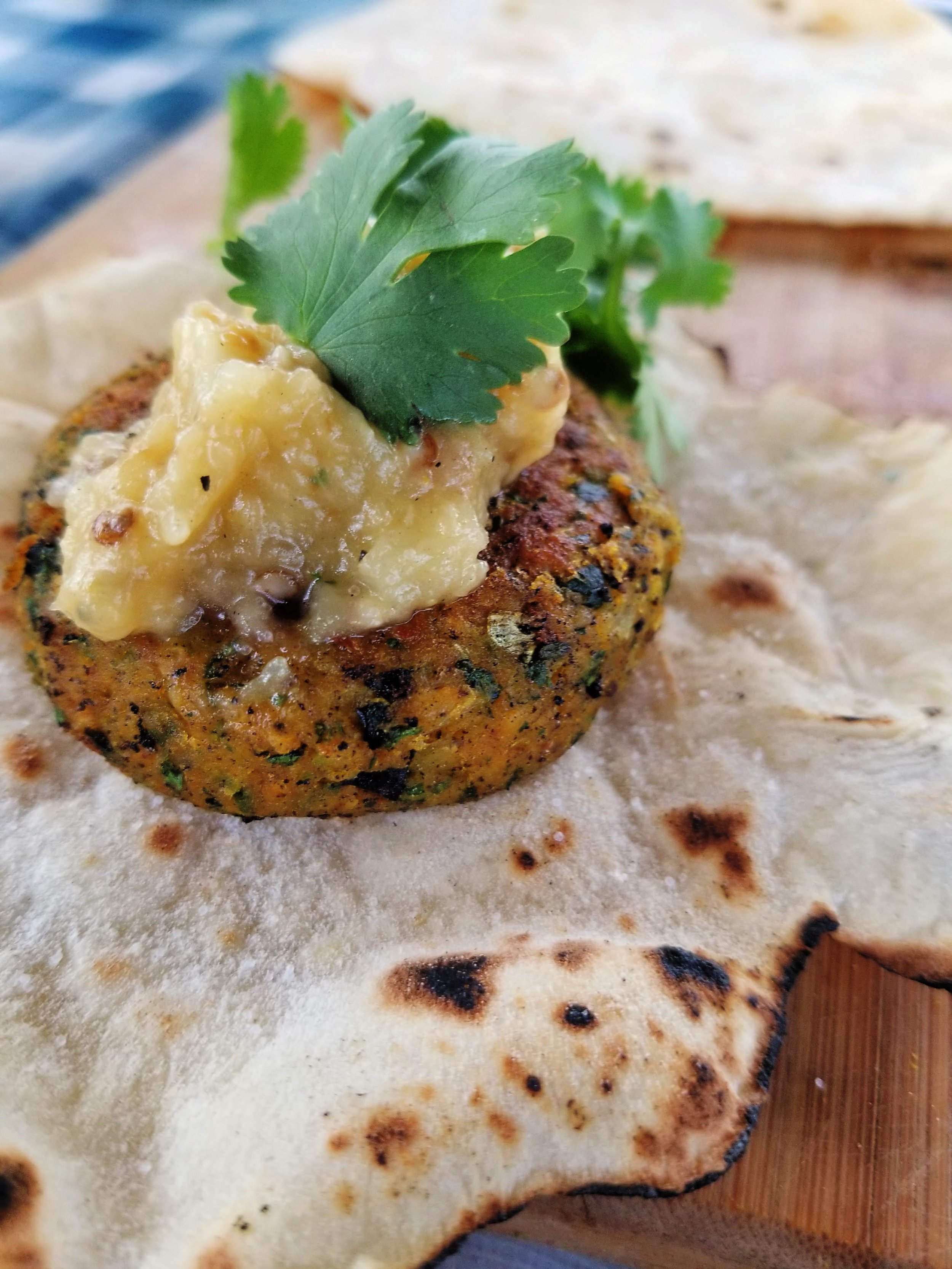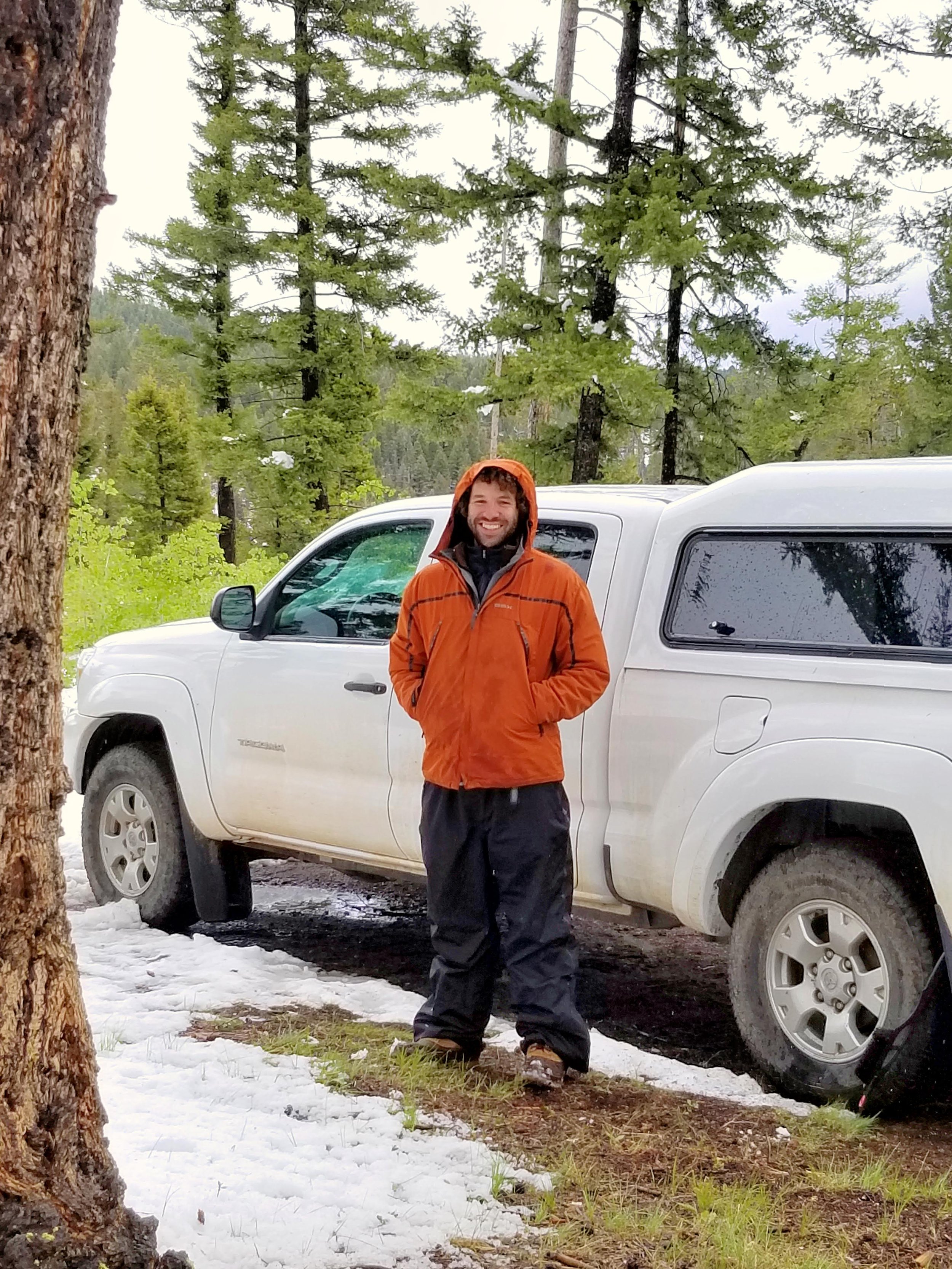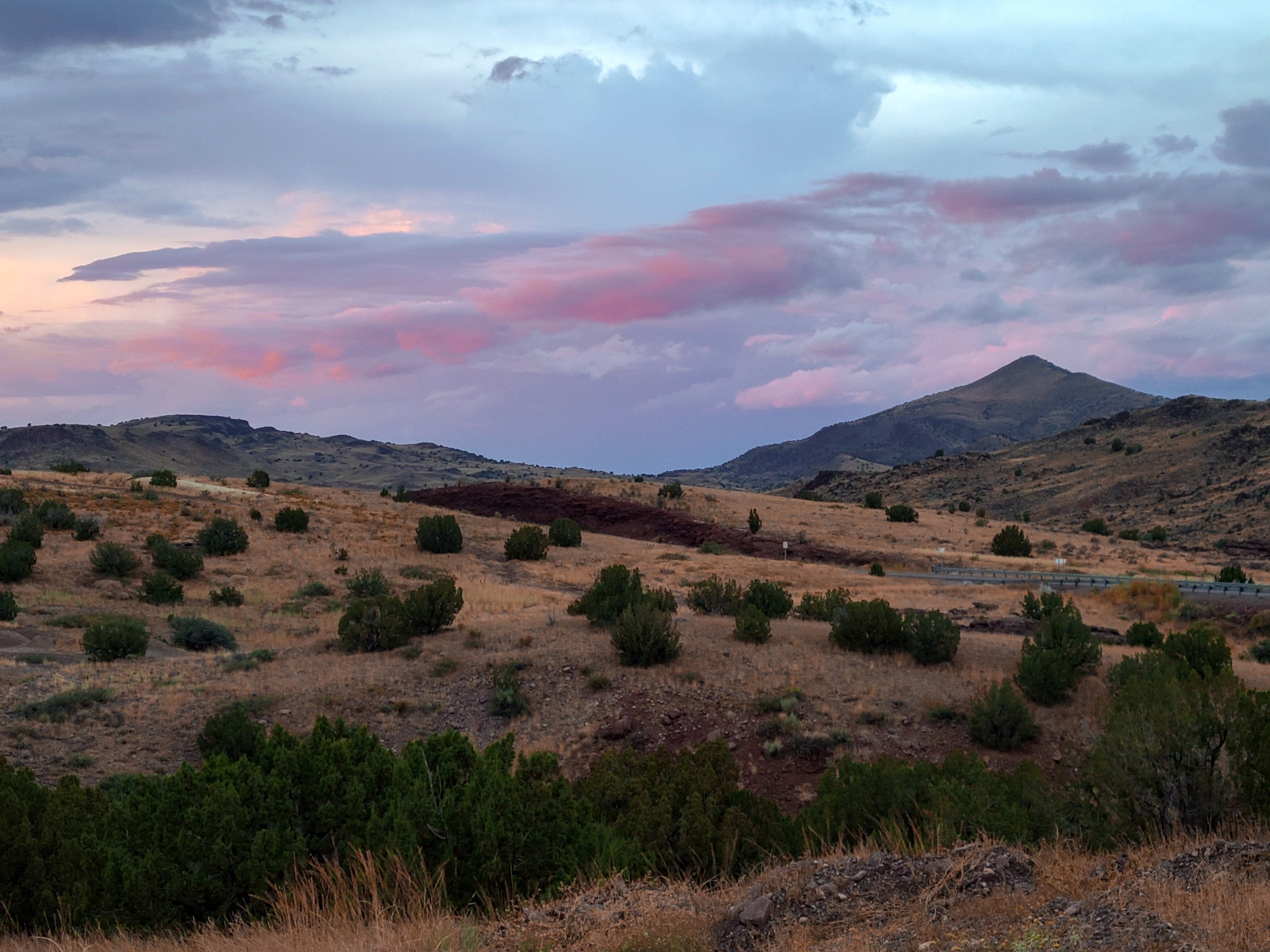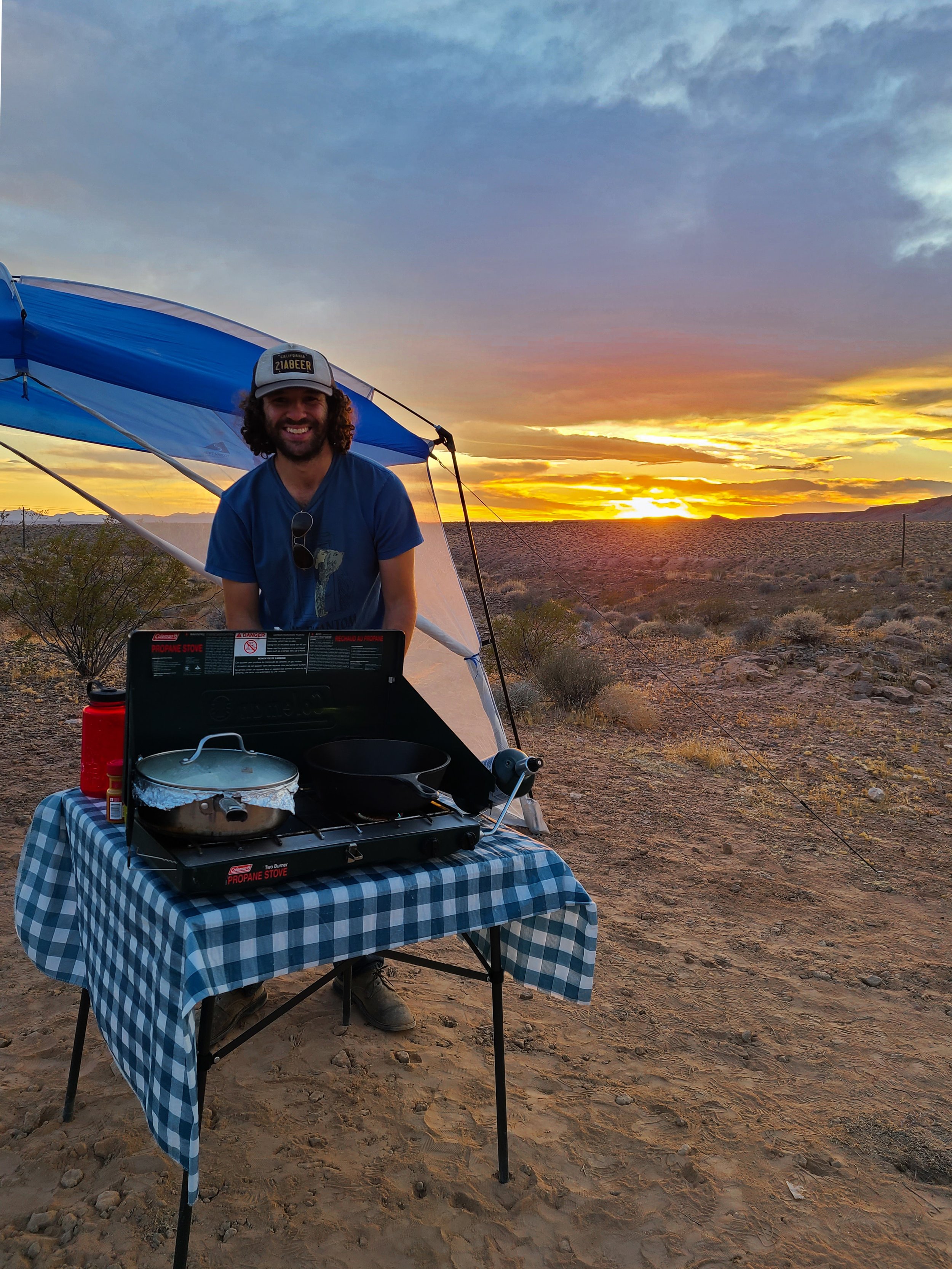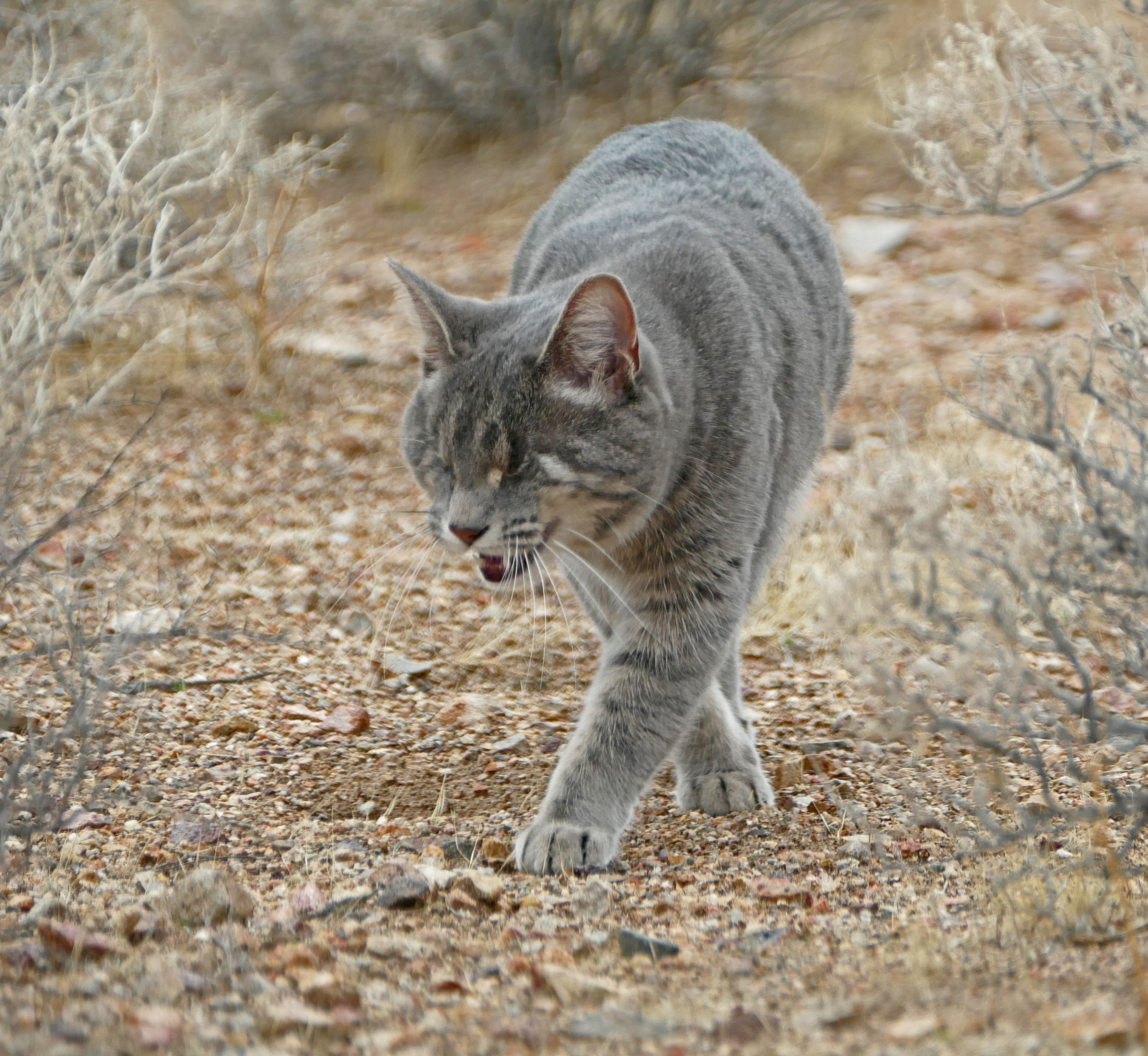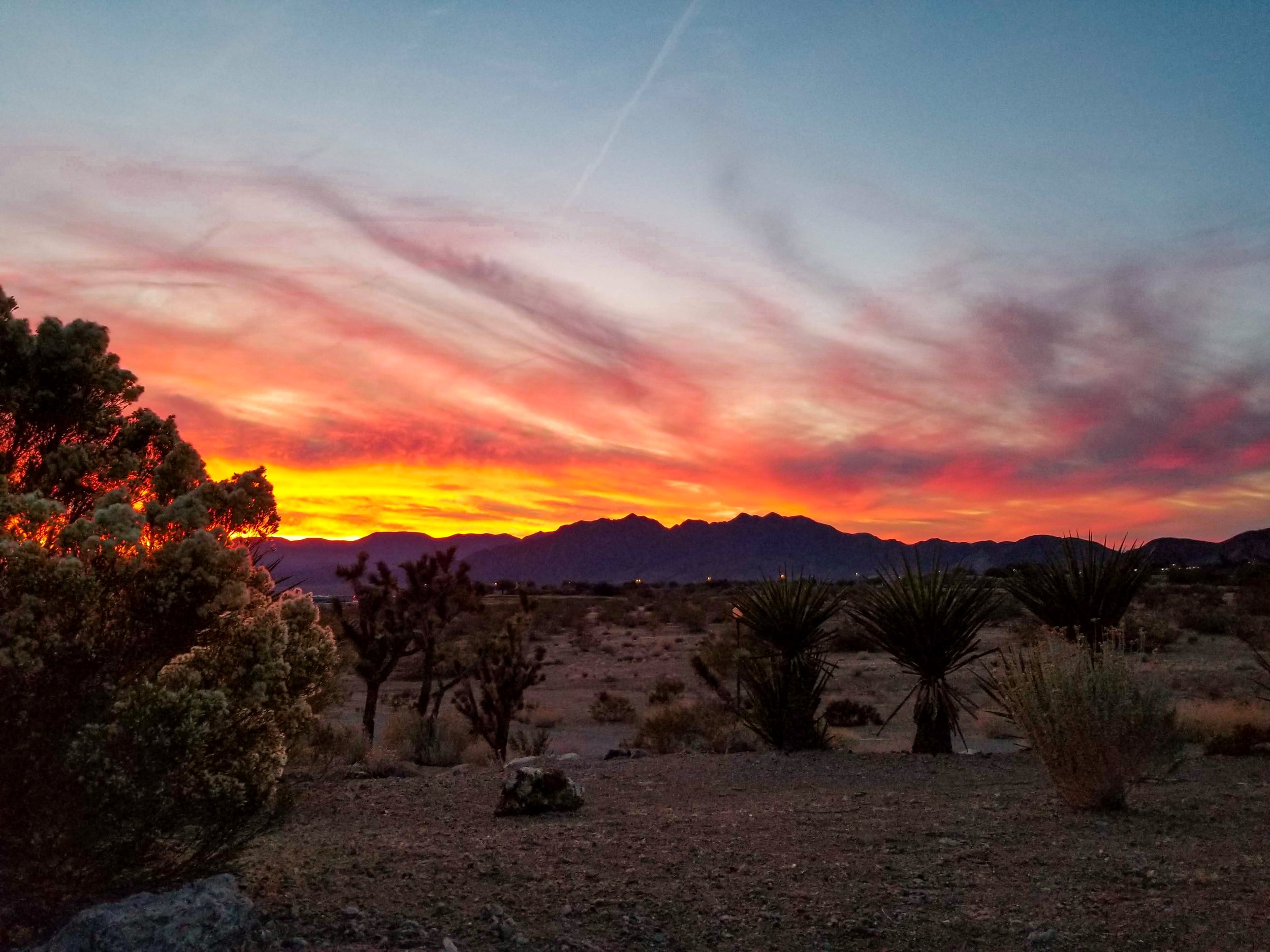Identity Crisis
Episode 2 Extras
“As much as I wanted van life, I worried that if I lived in a vehicle he couldn’t come ‘home’. That was a deeply emotional conundrum for me. How could I take care of him without a pretty house, where I could cook his favorite foods?”
I know now that, for me, home is more a state of mind than an actual dwelling. That good lifetime parenting means providing consistent reliable support by showing up and listening. Although honestly, sometimes a plate of freshly baked cookies will do the trick.
Transcript
You have a story you tell yourself.
It’s the story of who think you are. Who you want to be. How you think others perceive you. And the value you believe you bring. It may be intentionally crafted, or you don’t even realize you’ve been weaving it.
But humans are notoriously unreliable narrators and poor judges of character.
So, does that make your story untrue? Does it matter?
What if all the elements you rely on to support your story were dismantled one by one? Who would you be then?
My name is Carol Fisher and this is The Carol-Van. For the past three-and-a-half years I’ve been living and traveling in my minivan full-time, by choice. I don’t own or rent a conventional home. Anything I do own fits in my car; I sold everything else. Second only to becoming a mother, it’s the best thing I’ve ever done.
This episode was recorded in Augusta, the capital of Maine, and Aulds Cove, Nova Scotia. Which turns out may be a fitting location. Aulds Cove is a bifurcated community sitting in two different counties. Perhaps it’s had an identity crisis, like I had in this episode when I was stunned to discover that preparing for van life involved far more than completing a checklist of tasks and hitting the road.
You can't take it with you.
Although ancient Egyptian rulers were pretty sure they could. The pyramids were filled with everything they'd need for the afterlife. All their prized possessions that validated their status, that validated their very identity.
I wasn't preparing for the afterlife. I was planning for van life.
I suppose I could consider van life as a kind of afterlife. But my afterlife definitely wouldn't require anything close to what a dead pharaoh needed. It wouldn't require even a fraction of my mortal belongings.
Having discovered van life, I was obsessed with living on the road. It promised everything I hadn't known I wanted. Nay, needed. Untold freedoms. Untethered in ways I'd only imagined and in ways I hadn't yet imagined.
My brain was in overdrive with the planning. And I was planning to downsize significantly in anticipation of living tiny. Since I didn't own a home, I didn't have the options of selling or renting out a fully furnished house, or turning it into an Airbnb. Paying to store everything indefinitely would be costly. And annoying. I didn't want to shell out rent every month for stuff I wasn't using. Especially since I wasn't even quite sure how I'd earn an income on the road. But, I'd figure that out later.
Selling everything seemed the most practical thing to do. It made so much sense, it didn't feel like a difficult decision at all.
Weeks later, I roamed through my apartment, pondering how and where to begin. I wandered from the living room to the kitchen to the bedroom. Again and again. Peering into closets, cabinets, and drawers. Doing absolutely nothing productive.
In deciding to sell everything, I'd underestimated much more than the scope of the project.
Surveying all my carefully chosen furnishings, I wondered who I would be when I was entirely without possessions.
It was suddenly unsettling to imagine owning nothing.
I'd been accumulating stuff for most of my life. Imitating my parents. They worked hard on their upward mobility. From a single meager salary barely covering expenses between paychecks, to two good incomes and, finally, to a comfortable retirement.
That’s how life in the insular, homogenous suburbia where I grew up was done. Van life couldn’t be more different than the American dream I was programmed to believe and accepted without question. In which quantity was the measure of success. The standard for success was so binary, that a non-conformist experiential lifestyle that embraced minimalism, such as van life, would’ve been misconstrued as failure. Van life might’ve been tolerated as a phase for young people out to sow their oats or find themselves. But for a middle-aged woman, such as I was when I discovered van life, in a best-case scenario it would’ve been considered peculiar and eccentric. No doubt there would’ve been plenty of gossip.
That didn’t matter to me. I’d been so sure I wanted van life. The answer to my restlessness and promise of liberation from the rat race, from the oppression of conformity was irresistible. But now, something felt off. All the closets, cabinets, and drawers, every room in my apartment held the signs of a direction I recognized. Yet, I was on a path in the opposite direction, all the same signs warning that I was headed the wrong way.
In my mid-twenties, after the end of a brief marriage, an immature mistake that young man didn’t deserve, I was living entirely alone for the first time in my life. Ever the approval-junkie, I thought that if I could make a home, host, and entertain as well as my parents, they'd see me as successful and be proud of me.
Growing up, our home was party central. At least, it seemed that way to me. My parents' parties were genuinely impactful to me. I was impressed by the care invested in all the preparation. How lovely the house looked, the presentation of the food, and the ambiance my parents created for those evenings. No detail was overlooked. Pride in their home and their hospitality were a big part of my parents' identity. As a young adult with my own place, that’s how I wanted to be, but with a cool, single-girl vibe.
Following their model, my kitchen was stocked with everything I needed for entertaining; barware, stemware, platters, serving bowls, charcuterie boards, fondue pots. It made me feel sophisticated. Like a party at my place would be so much more than red Solo cups.
I remember the first time I cooked dinner for my parents when I lived alone. It was their wedding anniversary. Anyone can make a dinner reservation. But for me, to cook a meal and serve it was a show of love. My place was only sparsely furnished, but everything I needed was in my kitchen. I went to a great deal of effort to plan a fancy four-course meal. I was eager to demonstrate in any way that I could that the divorce was an anomaly for the now very grown up me. (Laughter) I was so young, and so dumb. I didn’t even recognize my own M.O.
I was not self-aware enough to clock my complicated feelings. But it's clear to me now that I was simultaneously needing to demonstrate my love, demonstrate my maturity, and I was definitely seeking that sweet, sweet approval I always craved.
On my salary, seafood was expensive and served only on special occasions. This occasion was very special; and I cooked up a storm.
When my parents arrived, they walked into an empty room occupied only by a dining table and chairs. But it sure was dressed up. From the fresh flowers and matching table linens, to the precisely arranged place settings and stemware. The meal had been prepped ahead, as I'd learned from my mom, allowing us to relax a bit and chat over cocktails. I could knock back drinks with my friends at the dive bars we loved, but I didn’t know a thing about wine. So, I’d researched and chosen wine to pair with the meal, hoping I’d made the right decision. I even plated the courses in the kitchen so the table wouldn't be crowded with messy platters and bowls.
My dad complimented me on every dish. I was so proud of myself! It all went off beautifully, and we were having such a great time. Until I noticed that my mother didn't seem to be as enthusiastic about the meal as my father.
Because she was trying not to vomit!
Oh my God! Although she never uttered the words, she found half the meal inedible. How could I have forgotten that she hated seafood! Realizing how much trouble I'd gone to, my poor mom quietly choked down her entire calamari salad without one word of complaint. I'm having convulsive sympathy-retching thinking about it. My mother's sensitivity to all the intention, effort, and expense I'd invested is one of the sweetest, most powerful memories I have of her.
The looks she and my father must have exchanged every time I went into the kitchen. I wonder if she moved her food to his plate so I wouldn't know. Or, maybe they even switched plates so she'd have his empty plate in front of her. I was mortified! How could I properly show love if I wasn't even attentive to the detail of my mother hating seafood? It was no secret; she’d said it so often.
I did manage to redeem myself, somewhat. I’d made a cheesecake for dessert. My mom’s favorite. Of course, I packed up whatever we didn’t finish for my parents to take home. Hoping maybe enough cheesecake would obliterate the horror my mother had endured at my table.
Overlooking my mother's aversion to seafood prompted me to be more mindful of the people I loved.
Thankfully, I had plenty of opportunities to make up for it.
Years later, when the roles of holiday entertaining reversed and I hosted Thanksgiving and Christmas, in my mind, I was relieving my parents, especially my mother, of the burden of hosting. I knew how much work it was. In that way, I felt I was honoring them. I wanted very much for them to witness that the importance of family, their legacy, had indeed been embraced by their children. That I could and I would take care of them, as I'd seen them care for their own parents. Because they deserved that. And I wanted to. I needed to.
During the time I was married to my son's father, it wasn't the size of our houses, the jewelry, or the cars that I valued. They certainly had their value, but it was the ability to take care of the people I loved that mattered most to me. All the little things I did in a day that added up to a declaration of love for my family informed my story of myself as a wife and as a mother.
That care and attention extended to dinners for friends, parties, and hosting overnight guests. My materialism was reflected in my collections of wicker baskets, vases, table linens, books, dish sets, candles, music, holiday decorations; everything I could think of to enhance how I might make people feel valued and special in my home. Overnight guests had their own room for privacy. Often adorned with fresh flowers, fluffy towels, and a pretty basket filled with toiletries, I'd stock the room with all the amenities I could think of. Especially so for my parents. In many ways the need for my parents' approval had waned, but I still very much wanted them to acknowledge how I'd matured, to see the adult me that was more empathetic, capable, and caring than the adolescent me. To see how I'd exceeded their own standard of hospitality. Which was about as mature as stomping my feet and demanding “Look at me. Watch me do this thing for you!”
Do we ever stop seeking our parents' approval? Or, is that just me?
On the other hand, it’s disturbing and a bit cringey to recall that I believed taking care of everything domestic to the extreme, freeing my son’s father from all concerns unrelated to his career, was a good thing. The depth and breadth of how I cared for him made me feel that I was being a good wife. I know now that I was a co-dependent, and that in working so hard to please him I was seeking my self-worth externally.
That level of devotion was also, in part, because I identified as a nurturer, a caregiver. Acts of service were part of my love language. In my early teens, I thought selflessness in helping others would bring me to be more like the martyred characters I admired in my favorite books. It went deeper than that. I was compelled to service and it permeated every aspect of my life.
I've worked in healthcare for decades, an industry that is perfect for the acts of service that make me good at my job. Caring for others by anticipating and meeting their needs is part of my identity.
I see that now in the way I’d taken my role as big sister seriously, and looked out for my younger sisters. You know, once I outgrew torturing them for sport. I see it in the way I believed I could "rescue" and nurture the damaged men that I thought I loved. In the way I took to heart my mother telling me, "I know you'll take care of me in my old age." So strongly did I identify as a caregiver, that my need to prove my mother's confidence in me would drive me to the very brink of self-annihilation when I failed to.
That’s why, as I stood in the center of my open-concept apartment where I could see all the wicker baskets, vases, books, and music I'd collected; where I could run my fingertips over the cool polished surface of the buffet that held the table linens, candles, and dish sets expressly acquired to serve those I love, I wondered, “Who would I be when everything was gone?”
Oh, hell. If I was really going to sell everything, I would have to first seriously examine the notion of my identity.
Who am I?
I couldn’t say.
After I'd divorced my son's father, life was very different. Over time, for reasons that are another story, I had become much less social, withdrawn, and detached. When was the last time I cooked a holiday meal? Hosted overnight guests? Had anyone over for dinner, or even drinks? Now, my son was away at college. My mother, suffering from Alzheimer’s disease, was in a memory care facility. I wasn't taking care of anyone. Sure, I was still of service in my job, but not at home. Not in my heart.
So, who am I?
I am a mother.
I’m Alec's mother. Two decades earlier, wrestling into the world at a mere 6 pounds, my tiny baby boy taught me how to genuinely put another's needs ahead of my own. Nothing, nothing had ever given me the same sense of purpose and meaning as being his mother has.
We had a history of friction. But there were some ways in which I'd very much aspired to be like my mother. Mostly, in the way that she celebrated everything. Especially holidays. At Christmas, the house was decorated to the rafters and out the doors. Even the bathrooms had Christmas soaps and towels.
I tried. While I was married to Alec's father, I went all out for every holiday. As if the sheer effort would make the memories stick. My cooking and baking eventually outclassed my mother’s and I curated my own recipes for our traditions. Alec will never remember that part of his life; he was too young. He was 12 when the divorce was final, and it was no conscious uncoupling. It was ugly. That's what he remembers. The animosity resulted in his having two very separate lives, in two separate homes, that rarely intersected.
As the custodial parent, I was extremely fortunate to have the lion's share of time with Alec. And I was very sympathetic to how Alec and his father missed each other when they had to be apart. How his father must have suffered between visits. I felt terribly guilty over it and was as flexible as possible for them. In addition to all the holidays, school breaks, summer vacations, and weekends, I didn't deny them any unscheduled time. So, when Alec was with me, I decided we'd disregard the calendar and make our own holidays. We'd be adaptable and make the best of the time we had together. I wanted to teach him that it was the celebration of relationships on the daily that was important. That shared experiences were far more than the designated holidays on the calendar.
After the divorce, I never again managed to do the holidays the way my mother had. Nevertheless, I hoped Alec would have good memories of our small celebrations and a sense of home with me.
When he left for college, I wanted to believe that no matter where I lived, he could find refuge with me should he ever need to. As much as I wanted van life, I worried that if I lived in a vehicle he couldn't "come home". That was a deeply emotional conundrum for me. How could I take care of him without a pretty house, where I could cook his favorite foods? I really wanted to know how that would affect him. He answered without any hesitation.
It didn’t matter. He had no sense of "home".
The devastation of his truth and how casually he confessed it made me dizzy. I was certain I’d failed him. That’s how I heard it. But it was no revelation for him. It was old news and he was fine.
Despite his reassurances, I grieved the loss of home I had imagined for us. I grieved the loss of the mother I imagined I would be, and all the things I imagined I'd provide.
What in the actual fuck? What was happening to me?
I had found the thing I thought would free me, van life, yet there I was, stuck waist-deep in the big muddy. Indecisive, grieving, the hopes I’d harbored crushed. That was not at all how I expected to feel.
It turns out, my checklist for my transition to van life didn’t account for the baggage I was dragging. I didn’t anticipate the emotional upheaval. First as a caregiver and mother, and then relative to my peers. It never occurred to me that the changes I’d have to make on the path to van life would challenge my perception of who I was and my place in the world. My story of my identity.
And my peers? Why was this suddenly a thing?
I'd downsized before and it never bothered me. In the decade prior, I'd gone from a 4600-square-foot house, progressively smaller to an 890-square-foot apartment. I thought I was looking forward to doing it again. I'd landed the cutest little studio cottage, maybe 320 square feet, fully furnished. I wouldn’t need to bring much at all to move in. Living there would reduce my monthly expenses so I could save money, buy the vehicle of my dreams, and hit the road.
It was a really good plan.
But all my friends had homes filled with things they'd collected over a lifetime. Things that told their stories. That demonstrated their social status. Their achievements. And I was about to discard everything that convention dictated should define me. I would have nothing. By society's measure, I would have no status
Even if I reconciled with that, I fretted that when I finally did live on the road, how I would answer the questions, "Where do you live?" or "Where are you from?" The replies serve as identifiers, a means for the inquirers to determine if I was friend or foe. If I was one of them.
Well, that spiraled me into the realization that in selling everything I'd have no tangible personal history.
By the time I discovered van life, my mother could barely communicate. So, when I’d come across photos from her past that I'd tucked away and forgotten they’d give me unexpected opportunities to visit with her in her prime. The way I wanted to remember her.
Unloading everything I owned meant there would be no unexpected discoveries like that for Alec.
I had to sit with the concept of “no possessions” for a while. Sure, it’s easy to sing about it when you’re wealthy and tripping on LSD. I didn’t have those luxuries.
And so I wondered, did my concerns really merit my anxiety? Did leaving no personal history truly matter? Who did it serve?
Somehow in that tornado of bewildering, and frankly disruptive, emotions, I had a rather astonishing "A-ha!" moment. Well, no I didn’t. Oprah has “A-ha!” moments. Mine was more like, “Huh.”
I don’t even remember how it came to me. It didn't quite address my identity crisis, but it was surprisingly effective in other ways. And it was so simple.
One question. “What’s the worst that can happen?"
Every scenario I could conjure was fear-driven. Fear of failure, fear of rejection, fear of humiliation, of feeling "other." Once I understood that fear was the barrier I attacked every, “What if..?” with a vengeance.
What if I couldn’t earn enough to support myself on the road?
What if I became broke and homeless?
What if my peers judged and denigrated me? I’d be humiliated.
What if Alec needed me?
I am the worst at asking for help, I hate doing it, to the point of self-sabotage. But I know I’m very lucky that it's available to me.
If things got bad on the road I could live with my sisters or friends while I got back on my feet.
If I had to return to a conventional job, I had plenty of in-demand skills and excellent references; I was totally employable.
Embarrassment is passing.
And failure is a great teacher.
Toxic people do not deserve any space in my life.
As much as I missed little-boy Alec needing me, adult-Alec is intelligent, capable, and resourceful. But if he did need me, I’d be only a phone call, a flight, or a road trip away.
None of those “What ifs?” were worse than the, “What if I didn’t make my best effort to embark on van life at all?”
Adjusting my perspective, reframing one “What if..?” at a time, propelled me forward and the purge finally commenced.
I knew in my heart that having withdrawn from socializing, I’d held onto all the wicker baskets, vases, books, music, table linens, candles, and dish sets for “someday.” And that “someday” wasn’t coming.
But what if it did? I wasn’t willing to wait for it.
Over the next six months, I posted big items on Craigslist and held moving sales. Initially, I felt a little wistful as I handed over my things to strangers. But I’ll tell you what, getting cash in exchange definitely helped me get over that. Cash was a stepping stone to van life.
There was some brief melancholy for the end of what used to be. But that was fantasy. What used to be was years of emotional and physical contortions to fit someone else's story of who I should be. Even if I wasn't yet sure of who I was exactly, I wasn’t going back to that used-to-be. I was moving forward to my wide-open future. And that would be whatever I made it.
So, I kept at the purge. Furniture, appliances, clothes, shoes, jewelry, books, CDs, decorations, pots, pans and plates. Sold.
After that, I donated whatever I couldn't sell. Digitized important documents, and shredded everything else.
To preserve my personal history, I kept all my photographs and handwritten letters. Four generations’ worth. I decided it did matter. Because history isn't made alone.
In all the months I'd been consumed with forging ahead, closing in on moving day I'd left my identity crisis behind, pretty much unexamined.
Who am I? I still didn't know.
I did, however, know other things.
I knew that I was the best mother that I could be to Alec.
I knew that my possessions didn’t define me. And I knew I didn't care what anyone thought about how and where I lived.
I knew that I believed I could live a fuller, better life. That belief was the catalyst to the trajectory I was on.
I knew as Alec watched me struggle with difficult decisions, change my entire life, and evolve, he saw strength, courage, and resilience. He had a model he could look to when he faced his own challenges. He was assured that stagnation in aging is not inevitable. I knew those things because he told me. I even have video evidence. Because he thought I deserved to know them. And he continues to remind me. All the time.
I know now what I didn’t know then.
I didn’t know that Alec’s profession would lend itself perfectly to nomad life. So that’s how he lives too.
I didn’t know that bucking convention would open up where, when, and for how long we visit.
I didn’t know that we’d ring in the New Year camping on the edge of the Mojave Desert in Nevada.
Or that there’d be dozens of times we’d talk late into the night, as the long arc of the Milky Way's hundred thousand million stars swept across the sky.
Or that we’d witness the startling emerald flash of a meteorite from our campsite in Patagonia.
And what I know with absolute certainty, is that wherever we roll up, often dirty and smelly from our separate adventures, the moment I’m in the light of Alec’s smile, I am home.
So. Who am I?
What does that question even mean?
Do I really need to examine any further than what I know right now? Nah. What I know right now is enough.
Hey! Thanks for listening to another episode of The Carol-Van!
Once again, a big shout out to my son Alec for the notes, support, and encouragement. I love you, Sweetheart!
Listener, I had no idea how many obstacles I’d have to surmount to get this episode published, but I’m deeply grateful for your patience. I’ve been blown away by everyone that’s asked about this episode, kept an eye on their podcast feed for this episode, and messaged me with your anticipation of this episode. Knowing now that it takes more than 200 hours to bring an episode to publication, the best I can do at the moment is to try to publish a new episode of The Carol-Van every few weeks. In the meantime, follow me on Instagram, Facebook, Twitter, and TikTok @thecarolvanpod for photos and videos from the road.
If you’d like, email me at thecarolvanpod@gmail.com. You certainly don't have to be a nomad to write. Tell me about a time when you had an identity crisis, or the episode has affected you. Ask me questions. Or just say, "Hi!" Your email could be featured in a future episode, with your permission of course.
You can also stay connected with me by visiting www.thecarolvanpod.com and signing up to get blog posts delivered to your inbox.
If this is your first experience with The Carol-Van, have a listen to Episode 1 to hear about how and why I chose van life.
Currently though, the very best way to support The Carol-Van is to subscribe, rate, and review on your favorite podcast streaming app. Your comments and 5-star review will help get the podcast noticed by the platform’s algorithm and by new listeners. And of course, there’s always the old-fashioned way; tell all your friends.
Alright, that's it for now. I gotta roll! Thanks again! I’ll see you further on up the road!
Show Notes
The Carol-Van: A (Van) Life Podcast, was developed and created by Carol Fisher. All episodes are written and produced by Carol Fisher.
Theme Song "The Wanderer" by Lemon Music Studio www.pixabay.com
Sound effects and music from www.storyblocks.com used in this episode
“Feel the Inspiration” Stanislov Baranstov
“Escaping Forever” Michael Vignola
“One Step Closer” Bruce Zimmerman
“Path to Glory” Sleeping Ghost
“Cerulean Clouds” Humans Win (Formerly Lance Conrad)
“Repetitive Mysterious Brooding Minimalist for Serious Drama” Suite Tracks Music
“Last Dream” Adrian Berenguer
“Beautiful Romantic Acoustic Guitar Theme” Bobby Cole
“Dark Room” Sleeping Ghost
“Heinous Crime” Humans Win (formerly Lance Conrad)
“Listening to Each Other”
“Everything We Hoped For”
“The Unforgettable Progressive Score Builds to Epic Ending”
“Serious Situation” Bhzimm
“Repetitive Mysterious and Brooding Minimalist for Serious Drama”
“Minimal Documentary Background Music”
